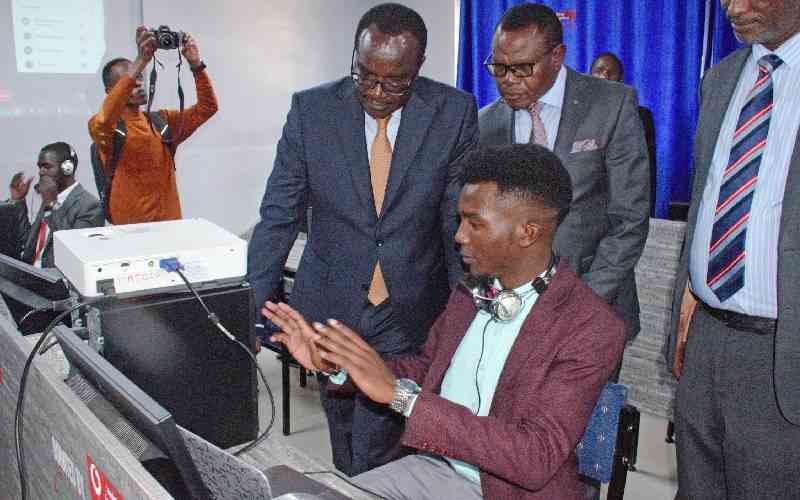×
The Standard e-Paper
Kenya’s Boldest Voice

Henry Kivuva, a student at Machakos Teachers Training College, takes Education Cabinet Secretary Julius Ogamba through a session during the launch of Scaling Digital Skills at the institution on October 24, 2024. [ John Muia, Standard]
Skilled Jua Kali artisans without formal education now have over 400 programmes to choose from while seeking to formalise their skills through Recognition of Prior Learning (RPL).







